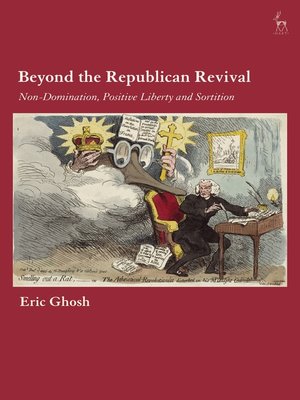
Sign up to save your library
With an OverDrive account, you can save your favorite libraries for at-a-glance information about availability. Find out more about OverDrive accounts.
Find this title in Libby, the library reading app by OverDrive.



Search for a digital library with this title
Title found at these libraries:
| Library Name | Distance |
|---|---|
| Loading... |
This is the first book-length treatment of both the non-positive- and the positive-liberty strands of the republican revival in political and constitutional theory. The republican revival, pursued especially over the last few decades, has presented republicanism as an exciting alternative to the dominant tradition of liberalism.
The book provides a sharply different interpretation of liberty from that found in the republican revival, and it argues that this different interpretation is not only historically more faithful to some prominent writers identified with the republican tradition, but is also normatively more attractive. The normative advantages are revealed through discussion of some central concerns relating to democracy and constitutionalism, including the justification for democracy and the interpretation of constitutional rights.
The book also looks beyond republican liberty by drawing on the republican device of sortition (selection by lot). It proposes the use of large juries to decide bill-of-rights matters. This novel proposal indicates how democracy might be reconciled with constitutional review based on a bill of rights. Republicanism is not pitted against liberalism: the favoured values and institutions fit with liberal commitments.
The book provides a sharply different interpretation of liberty from that found in the republican revival, and it argues that this different interpretation is not only historically more faithful to some prominent writers identified with the republican tradition, but is also normatively more attractive. The normative advantages are revealed through discussion of some central concerns relating to democracy and constitutionalism, including the justification for democracy and the interpretation of constitutional rights.
The book also looks beyond republican liberty by drawing on the republican device of sortition (selection by lot). It proposes the use of large juries to decide bill-of-rights matters. This novel proposal indicates how democracy might be reconciled with constitutional review based on a bill of rights. Republicanism is not pitted against liberalism: the favoured values and institutions fit with liberal commitments.







